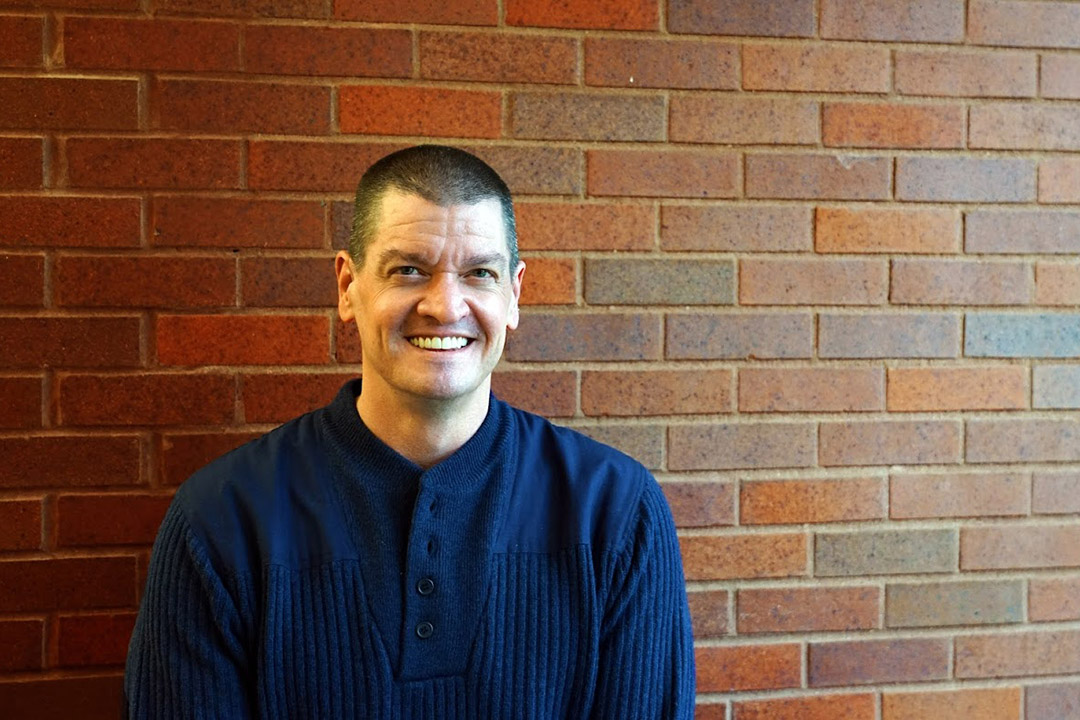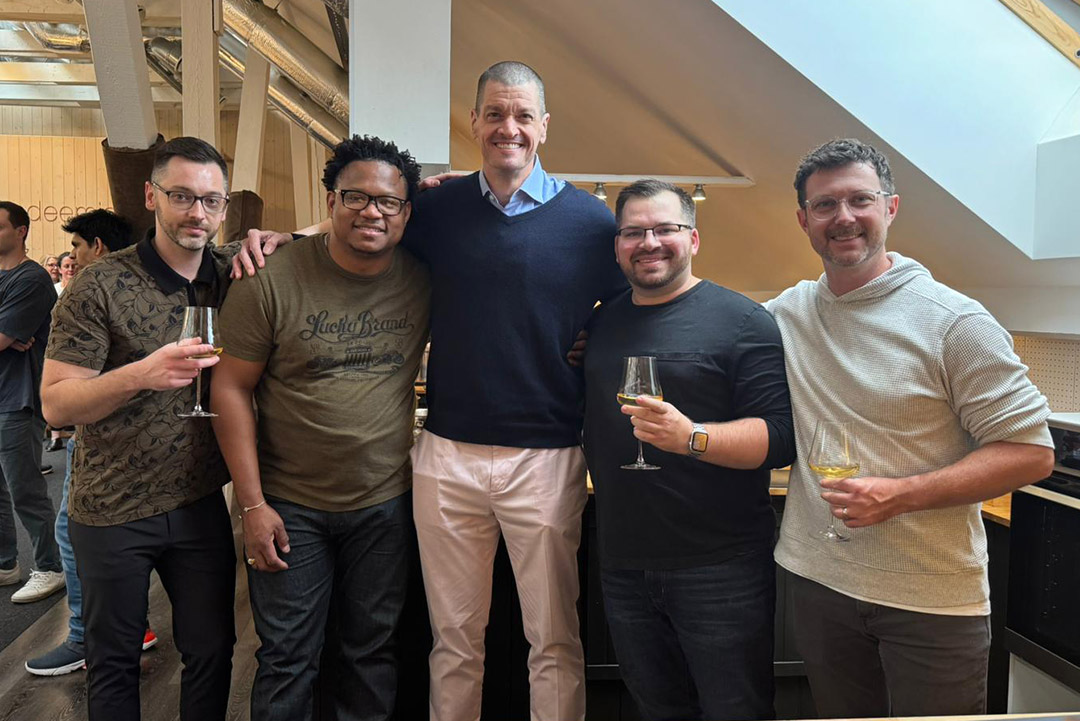
Chris Soukup
Graduate student and CEO Chris Soukup has spent the past 30 years rallying for equitable solutions for the Deaf and hard-of-hearing community.
Chris Soukup, a graduate student in the RIT Executive MBA program, is the CEO of Communication Service for the Deaf, a nonprofit organization that provides resources and services to benefit the Deaf and hard-of-hearing community in the employment sector. Soukup, a third-generation member of the Deaf community, has spent the past 30 years rallying for equitable solutions for a community of over 11 million individuals in the United States.
You’ve already had an established professional career, so what made RIT appealing to you?
I began working toward a graduate degree after completing my baccalaureate program at Gallaudet University but put that experience on hold to pursue professional opportunities. It has been a personal goal to return to school and further my education for many years. My organization, Communication Service for the Deaf (CSD), has frequently collaborated with the National Technical Institute for the Deaf over the years.
The Executive MBA program at RIT is well designed and aligned well with my personal and professional goals. The online construct of the EMBA provided me with the flexibility that I needed to pursue this degree while continuing to lead CSD. I am so glad I made the decision to begin this journey.
How has the EMBA program helped you evolve as a leader?
One of the benefits of a program like the EMBA is that the experience involves significant introspection. Over the past year, the courses I am taking have created space for me to reflect deeply about the work that I do, the contributions that I make personally to my organization, and my leadership practice. It is hard to overstate the value of an experience that brings together and synthesizes new knowledge, ideas, and perspectives. Like anything else in life, you get out of something what you put into it. Recognizing that there are always opportunities to learn and grow, no matter how much experience you may have, is important.
CSD has played a major role in your life. What lessons have you learned from your evolving relationship with this company?

Provided
My deafness is genetic. I was born deaf to a family of predominantly deaf people and grew up with a strong connection to Deaf and disability communities. My son is a thriving deaf and autistic teenager who hopes to attend NTID after graduating from high school. I feel incredibly fortunate to be a part of the CSD organization and to do work that directly contributes to making our world more inclusive and equitable for communities that are so special to me. I am thankful for the opportunity to have worked alongside hundreds of deaf and disabled professionals over the course of my career. Every person and every experience along the way has taught me something valuable. Some of the most memorable lessons that I have learned taught me patience, resilience, and perseverance. Our impact as leaders is the result of consistent effort that accumulates meaningfully over time.
What are your long-term goals as someone who is deeply committed to fostering inclusion and accessibility?
I believe the best way to change perspective is through example. Disability is a fundamental part of the human condition. At some point in our lives, we will all experience some form of disability. I talk about this a lot because there is a sizable part of the population that seems to operate with the mindset that disability somehow does not apply to them. When we talk about an inclusive world, we are talking about everyone...all of us together.
The work that I do is intended to confront bias and false perceptions about disability. The best way to do this, in my view, is to spotlight success stories of people with disabilities who are thriving and to celebrate the abundant talent and social contributions of disability communities. My hope is that we eventually can normalize disability everywhere—in the media, at work, and at home in our neighborhoods.
What advice would you give to other professionals that are striving to balance career demands with their educational pursuits?
Without question, seeking to continue your education while working full time is a challenge. It is even more challenging when one has a family and there is an even more nuanced effort to balance between career, school, and home. I think it is important to remember that continuing one’s education is a choice. The experience is finite—there is a defined start and end to the journey. Understanding the adjustments that will be required in the near term to be successful is important from the outset as is ensuring that you have a support system around you to lean on when necessary.











